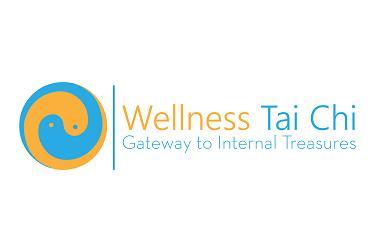
Wellness, Biotechnology, Ener-chi
Wellness Tai Chi
Tai chi > Articles >
Balance for life - Tai chi becomes accepted exercise program for seniors
WAYNESBORO, Pa. - Robert Fernandez's arthritis was so bad that he feared he'd spend the greater part of his life on a heating pad and taking pain medication.
Fernandez, 69, had already undergone surgery for his arthritis and had prescription drugs, but the pain was still there, especially in his neck and back.
That's when his doctor recommended he go beyond practical medicine and give tai chi a try.
"I feel like I'm in a better state of mind," said Fernandez, who started taking tai chi at the Waynesboro YMCA this summer. "Before, I used to hate doing housework, but now there's less pain, less aches. I'm not taking as much pain medicine as I did."
Tai chi is a form of martial arts that focuses on balance, breathing and the body's natural flow of energy. Its movements are slow, graceful and very calculated - not the kind of stuff you'd see in a karate movie.
"You get fit, but over time," said tai chi instructor Eldon Winston, 71. Unlike weightlifting, running or rigorous aerobics, "you're not pounding on your muscles until you feel it," Winston said.
Physicians like tai chi because it's a low-impact exercise. Studies have also suggested that tai chi's focus on relaxation and serenity helps lower blood pressure. Its focus on balance helps reduce injuries due to slipping and falling among older adults, according to a 1995 study published in the Journal of the American Medical Association.
More and more, exercise programs such as tai chi, yoga and, to a lesser extent, pilates are being tailored toward seniors like Fernandez, said recreational therapist Emily Kolenda, a tai chi instructor and the aquatic fitness coordinator for the Waynesboro YMCA.
Kolenda teaches the "Sun" technique of tai chi, the kind recommended by the Arthritis Foundation. Fernandez is one of her students.
The Hagerstown YMCA, Hagerstown Community College and senior centers throughout the Tri-State area offer similar exercise programs.
"When I went to my first (tai chi) class, I thought, 'What am I getting myself into?' You have to do these strange movements. Am I going to look like a fool?" said Fernandez, of Fayetteville, Pa.
He added that part of the allure of tai chi is the social aspect.
"No one was singled out," Fernandez said. "We're all in the same boat."
Winston, 71, has been a practitioner of tai chi for years. He teaches tai chi for Berkeley County (W.Va.) Senior Services and will start teaching classes in Shepherdstown, W.Va., and in Shenandoah Junction, W.Va., this fall.
Winston said the most common mistake for first-timers is expecting to learn and do everything perfectly the first time. Winston's 1 1/2-hour-long classes often focus on a single position.
"If you're a Type-A personality - a perfectionist, an 'I will do it perfect' kind of person - you need to check that at the door," Winston said. "A Type-A personality will get frustrated."
"They say it lowers your blood pressure, but you don't want to have a heart attack the first day," he said.
Ronda Singer, recreation and social activities director for Berkeley County Senior Services, said the social aspect of tai chi is particularly important for seniors.
"Sometimes family thinks they're taking care of them (older relatives) because they come out to visit on Sundays or because they live in a nice home," Singer said. "They need more than that."
Singer said that for some, participating in the weekly classes provides fellowship that they might not be getting otherwise. On average, 10 to 15 people attend the free tai chi classes held at the local senior center on Wednesday mornings, Singer said. Winston said senior tai chi classes are very easy to find in West Virginia's Eastern Panhandle.
Kolenda, tai chi instructor for Waynesboro YMCA, said another advantage to tai chi is that it doesn't require any equipment.
"You can do it at home, anywhere," she said.
Winston said people can incorporate tai chi into ordinary movements, such as walking.
"You do tai chi everyday," he said. "If you're relaxed, if you're moving with balance, you're doing tai chi. That's what's important."
Fernandez said he's noticed the difference in his daily life.
"I noticed over time that I felt better," Fernandez said. "When I do housework, I don't feel as grumpy about it. Aches and pains, that sort of gets you down after a while. I definitely have a more positive outlook."
Source:http://www.herald-mail.com/?module=displaystory&story_id=145708&format=html | ||||